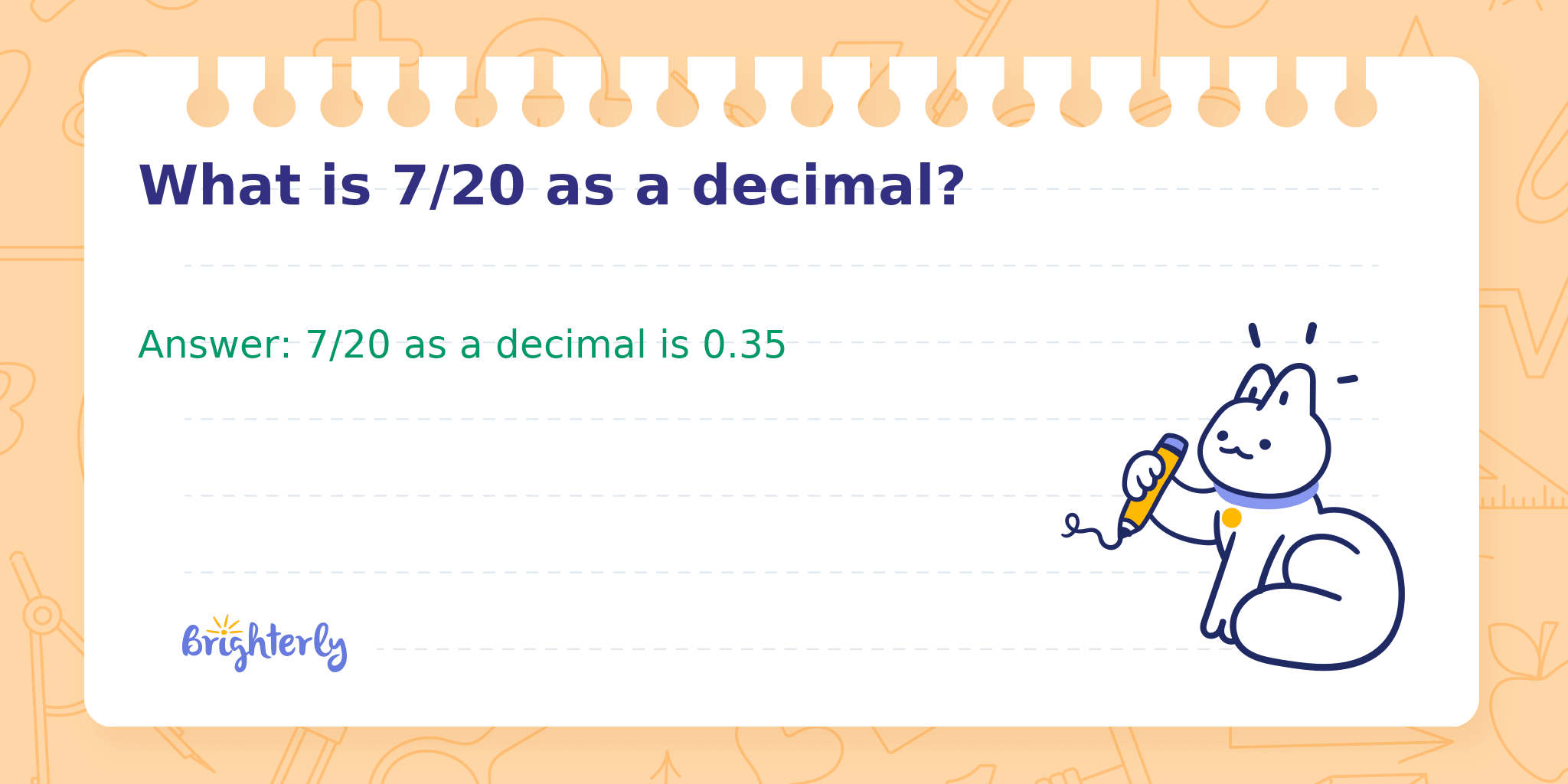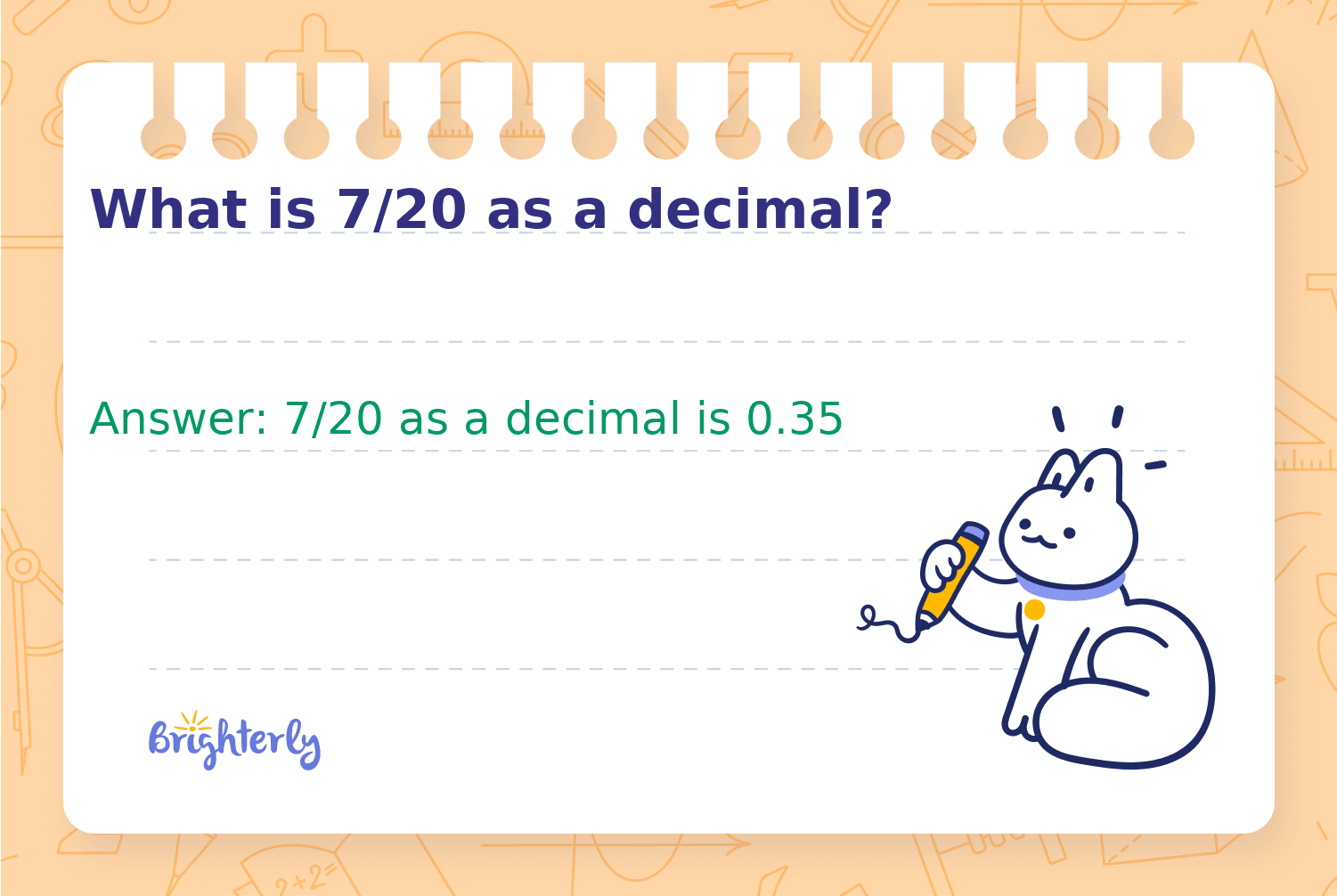
Reviewed by Rachelle Bencio Yu
What is 7/20 as a decimal?
Answer: 7/20 as a decimal is 0.35
Converting fractions into decimals is a common arithmetic skill that helps understand numerical relationships more clearly. The fraction 7/20 can be expressed as a decimal by dividing the numerator (7) by the denominator (20). This process translates the part-whole relationship of a fraction into a base ten system, making it easier to compare, estimate, and compute with other decimals.
Methods
Math Tutor Explanation Using the Division Method
This is the most direct way to convert a fraction to a decimal: divide the numerator by the denominator using standard division.
Step 1: Step 1: Divide 7 by 20
Step 2: Step 2: 7 divided by 20 equals 0.35
Math Tutor Explanation Using the Equivalent Fraction Method
This method converts the denominator to a power of ten to make the decimal conversion easier.
Step 1: Step 1: Recognize that 20 × 5 = 100, so multiply numerator and denominator by 5 to get 35/100
Step 2: Step 2: Write 35/100 as a decimal, which is 0.35
Step 1:
Step 2:
Math Tutor suggests: Practice More Fraction to Decimal Conversions
Looking to strengthen your skills in converting fractions to decimals? Try these similar exercises to practice more fraction-to-decimal conversions and boost your confidence.
FAQ on Converting Fractions to Decimals
Why do we convert fractions to decimals?
Decimals are often easier to use in calculations and comparisons, especially with money or measurements.
Can every fraction be exactly written as a decimal?
Every fraction can be written as a decimal, but some result in repeating or non-terminating decimals.
What do you do if the denominator can't be easily converted to 10, 100, or 1000?
Simply divide the numerator by the denominator using long division.
Is 0.35 a terminating or repeating decimal?
0.35 is a terminating decimal because it has a finite number of digits after the decimal point.


